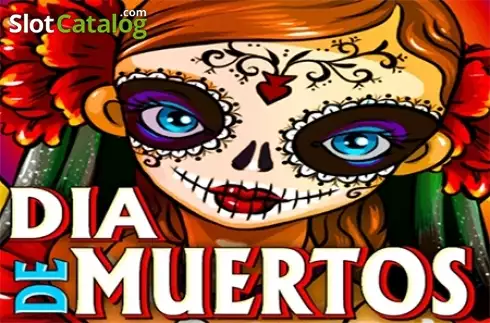Dia Gambling Statistics
- Gambling exists in every state, even Hawaii and Utah, where gambling is prohibited by law. But not all gamblers are the same. “Recreational” or “social” gamblers, for instance, buy the occasional lottery ticket, take the rare casino trip or bet small stakes in fantasy sports.
- » Under/Over stats » Handicaps stats » Squad » Top scorers » Goals statistics » Goalkeepers; Iven Austboe 16 games; Michael Crowe 0 games; Arild Oestboe 13 games; Trym Soelvberg Ur 0 games » Defenders; Axel Andresson 14 games; Sondre Bjoershol 9 games; Rolf Daniel Vikstoel 11 games; Herman Haugen 0 games; Runar Hove 3 games; Kristoffer.
As a blogger, I have goals. One of them is to write data-driven posts. What better way to provide informative content to my readers?
Statistics about gambling provide a perfect opportunity to write just this kind of post. I came up with the idea for this post a couple of days ago. A friend of mine (also a blogger) asked forfeedback on his latest post.
Here’s what I told him:
YouTube is the 2nd most visited site in the world. 37% of all mobile internet traffic belongs to YouTube.
The first three paragraphs—your introduction—are boring. Much of what you’ve written is bland to the point of being meaningless. For example, one of your sentences is “gambling games are part ofour culture”.
Well, yeah. So what?
You want to include specific data about HOW those gambling games are woven into our culture. The best way to do this—especially in your introduction—is by sharing specific statistics and datapoints to catch your readers’ interest from the start.
Here’s an example:
King Richard outlawed dice among his soldiers in 1190. Cervantes was writing about blackjack as early as the early 17th century. The word lottery is derived from the Biblical conceptof “casting lots”.
That’s a data-driven approach to explaining that gambling games are a part of our history.
Of course, that’s a little bit of a digression. You want to read a post with gambling statistics that you NEED. I offer 7 of these statistics below, along with some commentary and analysisrelated to each of them.
- About problem gambling
- Measures to limit problem gambling
- Regulatory agency roles
- Gambling host responsibility
- Support services for problem gamblers
- Research and other useful resources
About problem gambling
Problem gambling is gambling that causes or may cause harm to an individual, his or her family, or the wider community.Problem gambling is most commonly associated with gaming machines. Approximately two in five regular gamblers on gaming machines experience problems with gambling.
Sometimes the harm may result from just one gambling session. In other cases, it might be the result of regular gambling sessions over a period of time and involving substantial amounts of money.
The harmful effects of problem gambling can include:
- Financial problems
- Problems at work (ranging from poor performance to fraud)
- Poor parenting and other relationship problems
- Family violence
- Alcohol abuse
- Mental health problems
- Suicide.
Measures to limit problem gambling
A key intention of the Gambling Act 2003 is controlling the growth of gambling, and preventing and minimising the harm caused by gambling.To support this, the Gambling (Harm Prevention and Minimisation) Regulations, last amended in March 2015, contain a range of measures including:
- Restrictions on venues suitable for operating gaming machines
- No automated teller machines (ATMs) allowed in the gambling area of a venue
- Maximum stake and prize limits for gaming machines
- A feature on each gaming machine which interrupts play at intervals of not more than 30 minutes of continuous play (the messages display information about the duration of play, amount of money spent and net wins or losses)
- Restrictions on jackpot branding and advertising
- Requirement to give venue staff problem gambling awareness training
- Requirement to make information about problem gambling available to patrons
- Ability for venue staff to issue exclusion orders to patrons
Problem gambling levy
Problem gambling services are funded through a levy on gambling operators. The levy is collected from the profits of New Zealand’s four main forms of gambling: gaming machines in pubs and clubs; casinos; the New Zealand Racing Board and the New Zealand Lotteries Commission.
The Ministry of Health is responsible for the prevention and treatment of problem gambling, including the funding and co-ordination of problem gambling services.
The current regulations came into force on 1 July 2016.
The levy rates are payable for the period from 1 July 2016 to 30 June 2019 (inclusive).
Regulatory agency roles
The Department of Internal Affairs administers the gambling legislation (the Gambling Act 2003), licences gambling activities (except for casino gambling) and provides public information and education on gambling harm prevention and minimisation.The Ministry of Health is responsible for funding and coordinating problem gambling services.
Gambling host responsibility
Dia Gambling Statistics 2020
Venues which have gaming machines have a legal duty to minimise gambling harm. Venue staff also have certain responsibilities to keep gamblers safe.Gambling host responsibility has some challenges. It’s important to know what the signs of harmful gambling are and how to check in with gamblers about whether they’re ok.
The Health Promotion Agency, in partnership with the Department of Internal Affairs and the Ministry of Health, have developed a Gamble Host Pack with resources to support venue staff meet their host responsibility requirements. Resources in this pack include:
- Gambling Host Responsibility - Guidance for venue staff
- Gambling Harm Reference Resources
- Everyday Tips for Gambling Hosts
- Posters and Leaflets
- Gambling Harm Logbook Template
Problem gambling awareness training
The Gambling (Harm Prevention and Minimisation) Regulations 2004 require that Class 4 licence holders provide problem gambling awareness training to the venue manager and any other staff, so to ensure there is always a trained person at the venue whenever the pokies are available.It is leading practice that training is available to all staff members who have regular contact with gamblers.
A person who is trained should be able to identify signs of problem gambling, and know how to approach a gambler who is experiencing harm.
The Gamble Host Pack has useful resources to help operators and staff in their problem gambling awareness training. The pack includes a clear checklist of the most common signs of problem gambling and tips of how staff can interact with gamblers they’re concerned about.
The Department can also help operators by providing information about problem gambling awareness training for staff and the legal harm prevention and minimisation requirements. If you’d like more information please contact the Gambling Group.
- See also: Fact Sheet 32: Problem Gambling Awareness Training
Signage for pubs, clubs and casinos
All pubs and clubs with gaming machines and casinos must have problem gambling pamphlets and signs in their venues.Regulation 11 of the Gambling (Harm Prevention and Minimisation) Regulations 2004 requires this information to be displayed and available to players.
Dia Gambling Statistics 2019
The Gamble Host Pack includes posters and leaflets to help meet these requirements and can be printed from the links below:- Harm Minimisation Poster A3 (PDF, 88KB)*
- Harm Minimisation Poster A4 (PDF, 88KB)*
- Harm Minimisation Wallet Leaflet (PDF, 95KB)*
- Harm Minimisation Brochure (PDF, 113KB)*
Support services for problem gamblers

Self Exclusion Orders
If you think you, or someone you know, may have a gambling problem you may like to consider self-excluding (or talking to your relative / friend about self-excluding) from a gambling venue(s).Self-exclusion means that if a patron identifies him or herself as a problem gambler they can ask a gambling venue(s) to exclude them from the gambling area of the venue(s) for a period of up to two years.
Multi Venue Exclusion
Multiple Venue Exclusion (MVE) is an extension to single venue self-exclusion. It allows gamblers to self-exclude from multiple venues without having to visit each individual site.It has been used as an intervention tool in New Zealand since 2004. Since then MVE has evolved and expanded to most parts of the country.
A Multi Venue Exclusion is generally initiated by a problem gambling service provider on behalf of a client who has opted to self-exclude from the gambling venues of their choice. If a gambler requests self-exclusion at a venue, the venue manager must exclude the individual immediately and should help them contact the local MVE coordinator and exclude that gambler from their venue.
Once the exclusion process is initiated, it is a criminal offence to breach an exclusion order and a gambler may face a fine of up to $500 (Section 312, Gambling Act 2003).
Failure by a venue manager to prevent an excluded person entering the gambling area or removing them is also a criminal offence. The penalty for venue managers, or a person acting on their behalf, is a maximum fine of $5,000.
Dia Gambling Statistics 2018
To avoid a conviction venue staff need to prove:- Suitable harm minimisation procedures and measures were in place; and
- The procedures and measures were being implemented.
- Report: Multi Venue Exclusion Recommendations - August 2016 (PDF, 486KB)
- Report: Multi Venue Exclusion Recommendations - August 2016 (.DOCX, 213KB)
Dia Gambling Statistics Illinois
Support Services for Problem Gamblers
If you think you or someone you know may have a gambling problem, talking to someone can help. Find a problem gambling service near you.- Contact details for problem gambling services around the country (www.health.govt.nz)
Research and other useful resources
Key facts based on research and other data:AUT problem gambling conference presentation about ensuring that gambling operators maintain an appropriate focus on the safety requirements of the Gambling Act 2003:- International Gambling Conference - The Regulators' Challenge: Looking Forward (22 February 2008) (PPT, 100K)**
*You need Adobe Reader installed on your computer to view our files. If you are unable to open the files we recommend you get the latest version of Adobe Reader. You can download and install Acrobat Reader for free from the Adobe website.
**
 This document is in Microsoft PowerPoint (PPT) format. You need to have Microsoft PowerPoint viewer installed on your computer. You can download a free version from the Microsoft site.
This document is in Microsoft PowerPoint (PPT) format. You need to have Microsoft PowerPoint viewer installed on your computer. You can download a free version from the Microsoft site.